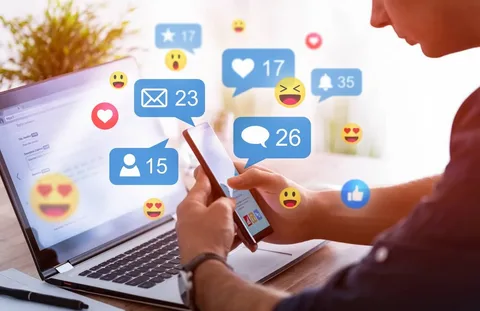In today’s hyper-connected world, social media stages like Facebook, Twitter (presently X), Instagram, TikTok, and others are fundamentally to how billions of individuals communicate, share thoughts, and devour substance. These stages have revolutionized everything from individual connections to political developments, promoting procedures to open talk. In any case, the fast development of drive social media lawsuit impact has moreover driven to various lawful challenges and claims that target the companies behind these stages, regularly with far-reaching suggestions.
Social media claims include complex issues, extending from protection concerns and information breaches to criticism claims and mental property debate. This article investigates the scene of social media claims, highlighting key cases, their suggestions, and how they shape long-standing time of these omnipresent stages.
Privacy Violations and Data Breaches: A Growing Concern
One of the foremost noteworthy ranges of case against drive social media lawsuit companies includes client protection and information security. As stages collect tremendous sums of individual data from their users—ranging from area information to browsing history and private messages—concerns almost how this information is put away, utilized, and shared have ended up vital. Companies are confronting expanded investigation from controllers, governments, and the open over their dealing with of client information, driving to a few high-profile claims.
The Cambridge Analytica Scandal
One of the preeminent scandalous drive social media lawsuit-related claims included Facebook (directly Meta) and the Cambridge Analytica embarrassment.In 2018, it was revealed that Cambridge Analytica, a British political counseling firm, had awfully gotten to the person data of millions of Facebook clients without their assent.The data was at that point utilized to target political promotions in the midst of the 2016 U.S. presidential race and other political campaigns around the world.
The repercussions from the humiliation was huge. Facebook stood up to various claims and examinations, driving to a $5 billion fine from the U.S. Government Trade Commission (FTC) in 2019—the greatest privacy-related fine ever constrained by the FTC. Facebook additionally settled a class-action claim for $725 million in 2022, compensating clients affected by the data breach.
This case stamped a turning point inside the relationship between drive social media lawsuit stages and their users’ security. It set a point of reference for future claims counting data mishandle and put weight on companies to grasp stricter data affirmation measures.
TikTok and Children’s Privacy
Another major claim included TikTok, the video-sharing app possessed by the Chinese company ByteDance. In 2020, TikTok confronted affirmations of damaging the Children’s Online Security Assurance Act (COPPA) by collecting individual data from clients beneath the age of 13 without getting parental assent. The Government Exchange Commission (FTC) fined TikTok $5.7 million, and the company had to overhaul its security arrangements to way better secure minors.
In expansion to the FTC fine, TikTok has confronted different class-action claims over security infringement, counting claims that the app tracks client movement without assent and offers information with third parties, counting Chinese specialists. These cases emphasize the developing lawful challenges encompassing the security of minors’ security on drive social media lawsuit stages.
Defamation and Libel: Navigating Free Speech vs. Harmful Speech
Social media stages have ended up central to the talk about over free discourse and censorship, with claims playing a urgent part in deciding the legitimate boundaries of what can and cannot be said online. Clients habitually post substance that others may consider defamatory or libelous, driving to claims that challenge both the people who post destructive substance and the stages that have it.
Section 230 and Platform Immunity
A key legitimate security for drive social media lawsuit stages is Segment 230 of the Communications Respectability Act, passed in 1996. Segment 230 shields stages from risk for substance posted by clients, expressing that stages are not distributers and, so, cannot be sued for defamatory or destructive substance transferred by clients.
Be that as it may, this lawful assurance has been challenged over and over, with faultfinders contending that stages ought to be held responsible for encouraging the spread of destructive or wrong data. High-profile criticism cases including drive social media lawsuit substance have tried the limits of Area 230, and later legitimate challenges have looked for to revise or cancel the law.
In 2021, previous President Donald Trump recorded claims against Facebook, Twitter, and Google, claiming that the stages had unlawfully censored him by suspending his accounts taking after the January 6 Capitol revolt. In spite of the fact that Trump’s claims confronted lawful obstacles, they reignited the wrangle about over Area 230 and the duties of drive social media lawsuit stages in directing substance.
Defamation Cases Against Individuals
In expansion to claims including stages, drive social media lawsuit clients themselves have been sued for maligning. In 2020, Johnny Depp recorded a criticism claim against his ex-wife Golden Listened over an op-ed she composed approximately household savagery, in spite of the fact that Listened did not straightforwardly specify Depp’s title. Whereas not solely almost social media, the case picked up enormous consideration on stages like Twitter and Instagram, where clients dismembered and commented on each perspective of the trial.
The claim highlighted how drive social media lawsuit can intensify maligning claims, turning legitimate fights into open exhibitions and complicating the interest of equity for both parties included.
Intellectual Property and Copyright Infringement
Mental property debate, particularly concerning copyright encroachment, are predominant on drive social media lawsuit stages. The capacity for clients to effectively share and repost different sorts of substance, such as music, recordings, craftsmanship, or composed fabric, has brought about in various lawful fights between substance makers, rights holders, and stages.
YouTube and Content ID
YouTube, the biggest stage for sharing recordings, has been the subject of various claims with respect to copyright encroachment. To address this, the stage actualized the Substance ID framework, permitting copyright holders to distinguish and oversee their copyrighted substance on the stage. When Substance ID identifies copyrighted fabric in a video, the copyright holder has the alternative to monetize the video, piece it, or track its execution. In spite of these endeavors, YouTube still faces lawful issues from substance makers and copyright holders. In 2021, a consortium of music distributers sued the stage, affirming lacking security of copyrighted music from being transferred without authorization. The claim claimed harms surpassing $1 billion, charging YouTube of benefitting from the unauthorized utilize of copyrighted music. This case highlights the challenge of striking a adjust between the interface of copyright holders and the open and open nature of drive social media lawsuit stages.
Instagram and User-Generated Content
Meta, the parent company of Instagram, has confronted different copyright clashes. The stage advances the sharing of photographs and recordings, which has brought about in circumstances where substance is shared without the initial creators’ consent. In 2020, picture taker Stephanie Sinclair recorded a claim against BuzzFeed for implanting one of her Instagram photographs in a piece without getting her assent. The claim was expelled due to Instagram’s terms of benefit, which allow clients to share open posts through implanting, but it raised concerns approximately the impediments of copyright security on drive social media lawsuit.
Social Media and Misinformation: Legal Responsibility for Content
Social media has seen a surge in claims focusing on stages for the dispersal of untrue data, especially relating to open wellbeing, races, and political occasions, with deception carrying significant real-world impacts.
COVID-19 Misinformation Lawsuits
In the midst of the COVID-19 widespread, drive social media lawsuit stages confronted feedback for allowing the spread of wrong data relating to the infection, immunizations, and open wellbeing conventions. In reaction, stages such as Facebook, Twitter, and YouTube implemented more exacting approaches to combat deception, which included labeling posts and suspending accounts that breached their rules.
In any case, these activities have not avoided lawful activity. In 2020, a class-action claim was recorded against Facebook by a bunch of people who charged the stage of dismissing to expel hurtful deception almost COVID-19 that come about within the passing of a family part. The claim charged that Facebook’s calculation prioritized engagement over truth, in this manner empowering dangerous substance to flourish.
This occurrence embodies the progressing struggle between platforms’ commitments to direct substance and their part in shielding free discourse.
Conclusion: The Future of Social Media Lawsuits
The legitimate challenges experienced by social media stages and their clients will proceed to advance nearby the headways in drive social media lawsuit. These challenges envelop protection breaches, criticism affirmations, copyright clashes, and claims related to deception, contributing to the multifaceted and ever-changing legitimate territory of social media.
It is evident thatdrive social media lawsuit platforms must delicately balance fostering open communication while safeguarding users’ rights. With governments and regulators worldwide intensifying their oversight of these platforms, new legal precedents will surface, significantly influencing the future of social media and its societal role.
In essence, lawsuits involving drive social media lawsuit underscore the profound influence that these platforms wield in our everyday lives and emphasize the necessity for clear legal frameworks that safeguard both users and the companies operating them. The ongoing interplay of free speech, privacy, and platform accountability will remain pivotal in defining the legal landscape of social media in the years ahead










